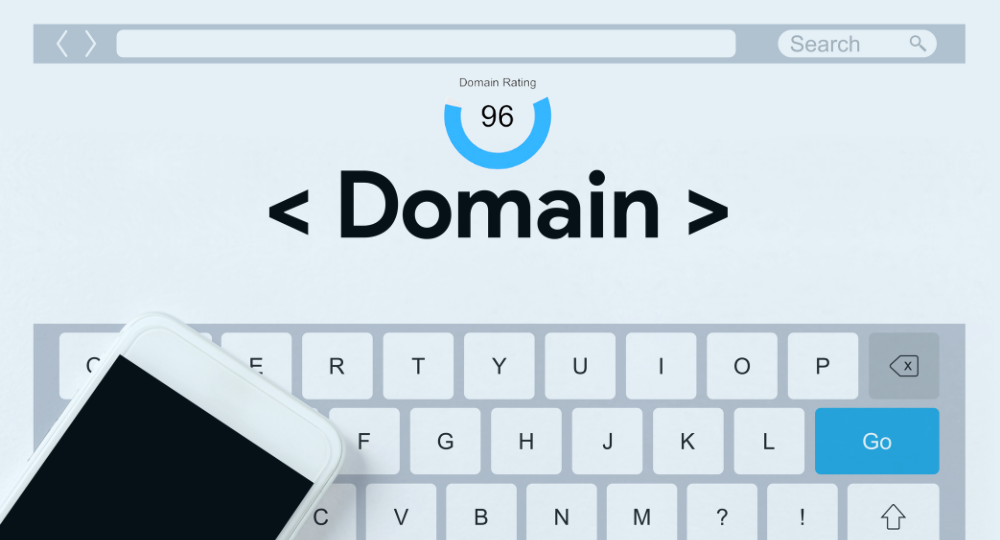
Last Updated on April 30, 2024 by anytimedigital
When it comes to understanding your website’s standing in the vast world of search engines, domain authority score is a crucial concept. This measure gives you an insight into how well your site may perform in search engine rankings. A good domain authority score isn’t just about boasting rights – it’s like having a secret key that can unlock higher visibility. It helps gauge the trustworthiness of your site and indicates how much weightage search engines give when deciding where to rank it. This post will help decode this vital SEO metric, shedding light on its history, significance, factors influencing it and strategies for boosting your own scores. In addition, you’ll learn to use various tools for checking domain authority scores. And, understand why comparing these with competitors can open up new link opportunities.
Understanding the Concept of Domain Authority Score
The domain authority score is a metric that gauges the “strength” or credibility of a website. It’s an SEO concept created by Moz and operates on a point scale from zero to one hundred. The higher your domain authority score, typically indicates more trustworthiness in the eyes of search engines. This particular scoring system came into existence because it was necessary for site owners and digital marketers alike to have some kind of standardized measure when evaluating their online presence compared with competitors. As you’ll learn at Website “Authority” Checker, Ahrefs also offers its version known as Domain Rating (DR).
Origin and History of Domain Authority Score
The inception story behind this pivotal SEO tool isn’t widely discussed but is nonetheless fascinating. With millions upon millions websites out there on World Wide Web, search engine algorithms needed an effective way to differentiate between them. Around 2010, Moz stepped up with what they called ‘Domain Authority’. Thereafter, aiming to quantify exactly how authoritative any given website was considered within its niche market segment. This is based purely off various factors such as backlink profile and root domains among others.
Moz’s DA became so prevalent that even today we still use it as one reliable gauge. This determines whether our sites are being viewed favorably by major players like Google & Bing or not. In fact, Ahrefs developed its own variation later called DR (domain rating), further highlighting the importance placed on these scores by professionals across digital marketing industry worldwide.
Factors Influencing Your Domain Authority Score
The calculation of your Domain Rating (DR), or domain authority score, is not a simple equation. It’s an intricate process that involves multiple factors, with the two most significant being high-quality backlinks and linking root domains.
Role of High-Quality Backlinks in Determining DA Score
High-quality backlinks are one major factor contributing to your domain authority score. These are links from reputable sites pointing towards your website. The more you have, the better for boosting your DA score. However, it’s not just about quantity, quality also matters significantly. Google tends to favor those who earn backlinks from trusted sources over those who gather low-grade ones in bulk.
Importance of Linking Root Domains
Besides backlinks, linking root domains play an essential role too. These refer to unique external websites that link to yours. Therefore, having numerous distinct sites link to you can greatly enhance your domain authority scores. This approach shows search engines like Google that diverse internet properties find value in what you offer on your website. As a result, leading them to deem it as good domain worthy of higher rankings on their result pages. A recent study found out that the number of referring domains is actually the strongest correlating factor when it comes to ranking higher up in search results.
Strategies to Boost Your Domain Authority Score
Boosting your domain authority (DA) score isn’t a task you can accomplish overnight. It requires careful planning and implementation of SEO strategies, such as leveraging organic traffic.
Leveraging Organic Traffic to Boost DA Score
The key is to attract genuine visitors who are interested in the content you offer. Increasing organic traffic often begins with producing high-quality content that’s valuable to readers. To increase your website’s domain rating, it helps if this content aligns with search queries related to your niche. This process may involve conducting keyword research or utilizing SEO tools for analysis and optimization. For instance, Ahrefs’ blog post on increasing website authority provides useful insights into how one might go about doing so.
Importance of High DA in SEO Strategy
A high DA score signals that a site is reputable and offers quality information. Factors which search engines like Google appreciate when ranking sites. Thus, working towards achieving a higher DA should be an integral part of any effective SEO strategy. If you’re not sure where your current domain stands in terms of its authority rating, using tools like SEO Review Tools – Domain Authority Checker, could give an accurate assessment quickly.
Furthermore, to boost the appeal and credibility of your site, you should aim at creating connections with other authoritative websites. Focus on similar niches through backlink building efforts. They contribute significantly towards improving key metrics including the overall rank under Ahrefs’ Domain Rating system.
The Correlation Between Domain Authority Score and SEO
There is a clear connection between Domain Rating (DR) and keyword rankings. However, Google denies using Domain Authority as a ranking factor. The concept of Domain Rating serves as an essential metric in understanding this relationship. A higher DR often indicates more robust link profiles and potentially better search engine visibility. However, it does not guarantee improved keyword rankings. Keyword relevance remains crucial for any effective SEO strategy.
Domain Authority Scores Impact on Keyword Rankings
In general terms, sites with high domain authority scores tend to rank well across various keywords. This is because they have built up trust with search engines over time through quality backlinks from reputable sources. Yet, the precise nature of how DA affects keyword positioning can be complex. This stems partly from factors such as website age or history online. In addition, older websites generally accrue more links over time which contributes positively towards their DA scores. However, newer ones may struggle due to fewer inbound links despite having high-quality content or being relevant within their niche.
Relevance Over Authority?
We should bear in mind, Google prioritizes relevancy above all else when determining page ranks for specific queries. So, while good domain authority helps your site’s credibility overall, focusing too much on boosting your DA at the expense of creating engaging content could be counterproductive.
How to Check Your Domain Authority Score
The task of checking your domain authority score might seem daunting. However, it’s actually quite straightforward with the right tools. Let’s share experience on how you can do this using a couple of reliable resources.
Using SEO Review Tools for Checking DA Score
A good place to start is by using SEO Review Tools’ Domain Authority Checker. It offers an easy and efficient way to check your website’s domain authority. Here are the steps:
- Type in your website URL into the provided search bar.
- Select ‘Perform Check’, then wait for a few seconds as it processes.
- Your domain authority score will appear. Additionally, with other useful metrics such as page authority and Moz rank.
This free tool gives an instant snapshot of your site’s overall strength from an SEO perspective. Therefore, making it ideal for those who want quick results without needing extensive knowledge about digital marketing.
Checking DA Using Linkgraph’s Free Bulk DA Checker
If you’re looking at assessing multiple sites at once, consider using Linkgraph’s Free Bulk DA Checker. This allows bulk checks which saves time when handling many URLs. The process is similar:
- Add all URLs (up to ten) into the input box provided on their homepage.
- Click ‘Check Now’. After processing, all scores will be displayed alongside each respective URL.
This approach provides you with a domain authority check. However, it also helps identify link building opportunities by comparing your site’s score to others. Remember that these scores are just numbers. Comparing your site’s score to others can give you an idea of how it might fare in search engine rankings. However, use this information wisely as part of your SEO strategy.
Benchmarking Your Domain Authority Score Against Competitors
It’s crucial to know your domain authority score. Additionally, understand how it stacks up against your competitors. This comparison gives you a clearer perspective on where you stand in the digital marketplace. To benchmark, use an authority checker tool, like LinkGraph’s Free Bulk DA Checker or SEO Review Tools’ Domain Authority Checker. These tools help compare websites and identify high da metric sites within your industry.
The Role of Backlinks in Benchmarking
A vital part of this process is understanding backlinks. Websites with higher authority often have more quality backlinks than those with lower scores. So, when comparing your website to others, pay attention to their backlink profiles. If these sites link frequently to other high-authority domains (known as “referring domains”), they’ll likely possess better scores. Learning from such patterns can guide improvements for your site.

